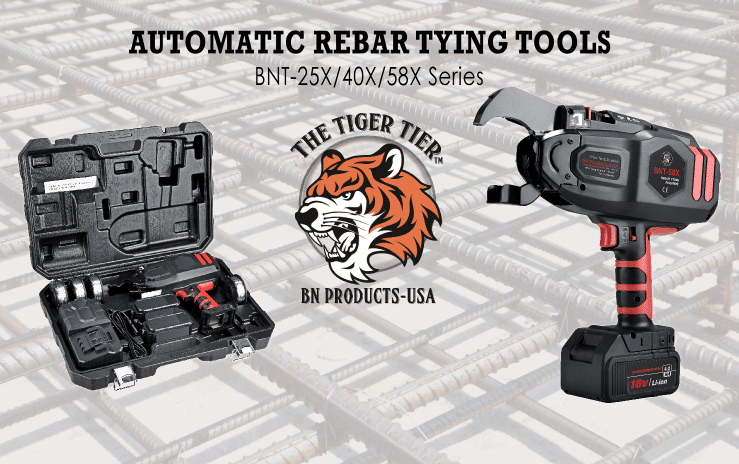
Revised November, 2020 to include updated product offerings available
When you’ve got a lengthy concrete project ahead of you, the question of whether you should be tying or welding rebar may not be the first thing that comes to mind. But it’s an important part of the job, impacting structural strength, ease of pour, quality of rebar used and speed of production. Which one is the right choice for your next job? Let’s take a good look at both options and discuss where each one works well.
Differences Between Tying and Welding Rebar
Of course, the first difference between tying and welding rebar is finding out what’s in the project specifications. If an engineer has determined that the rebar should be attached in a particular fashion, it’s always best to follow those instructions. Keep in mind, the architect may have used one particular style of fastening because of how it will incorporate into the entire structure, not just the foundation. But if it’s open to interpretation or you’re working on a small project at home, here are the differences.
Tying Rebar
For almost every intent, purpose, or code, tying rebar has become the standard way of securing your rebar together. Why? Tying keeps the rebar cool, so you don’t have structural issues down the road. It allows flexibility for the slab and the rebar to move independently to a certain extent without causing stress fractures in your finished project. It doesn’t require you to get any particular variety of rebar unless the specs call for it and it’s much faster to put together on the job site, especially when you have the proper tools for the job. Let’s take a look at a couple rebar-tying tools:
- The BNT-X Series Automatic Rebar Tiers automate your tying job with a lightweight tool that uses a powerful 18 volt, rapidly-charging lithium-ion battery. Each tie includes three turns and on average, you’ll get up to 4,000 ties out of each battery charge, saving you a lot of time otherwise spent replacing and charging batteries. The pistol grip lets you work all day comfortably while the wire coils provide up to 128 wraps per coil. We carry three models designed for different rebar size and tying needs, along with a line of accessories and replacement wire.
Welding Rebar
The first question you need to ask when considering welding rebar is whether or not it can be welded in the first place. Because rebar is not as closely controlled in terms of metallurgical quality, the average rebar you pick up at a contractor supply house or big box home improvement store isn’t high enough quality to be welded effectively. Welding-quality rebar is typically marked with a “W”. But many inspectors won’t allow rebar to be welded, depending on their local codes, and you’ll need to remember to not quench the rebar, as this affects its ability to provide proper support in the finished product. Many people avoid welding rebar because the concrete and the rebar in the final piece will expand and contract at different rates, so having the rebar welded together creates pressure points where the concrete can crack.
Now that you know the differences between tying and welding rebar, it’s time to apply that knowledge to your work site or next home improvement project. If you have any questions about securing rebar, which tool will work best for tying or any other questions, please feel free to contact us. At BN Products, we want to be your source for all your rebar tool needs.




